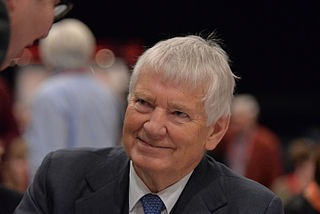A Quote by Ron Wyden
The combination of the growth of these digital technologies, the ability of the government to conjure up these secret interpretations, plus a very unusual and novel court make for this ever-expanding surveillance state. We so treasure our freedoms; we will regret it if our generation doesn't use this unique time to reform the surveillance laws and make it clear that security and liberty are not mutually exclusive. We can do both.
Quote Topics
Ability
Both
Clear
Combination
Conjure
Court
Digital
Ever
Exclusive
Expanding
Freedoms
Generation
Government
Growth
Interpretations
Laws
Liberty
Make
Mutually
Mutually Exclusive
Novel
Our
Our Generation
Plus
Reform
Regret
Secret
Security
Security And Liberty
State
Surveillance
Surveillance State
Technologies
Time
Treasure
Unique
Unusual
Up
Use
Very
Will
Related Quotes
Merging the ability to conduct surveillance that reveals every aspect of a person's life with the ability to conjure up the legal authority to execute that surveillance, and finally, removing any accountable judicial oversight, creates the opportunity for unprecedented influence over our system of government.
I am disturbed by how states abuse laws on Internet access. I am concerned that surveillance programmes are becoming too aggressive. I understand that national security and criminal activity may justify some exceptional and narrowly-tailored use of surveillance. But that is all the more reason to safeguard human rights and fundamental freedoms.
What we're really debating is not security versus liberty, it's security versus surveillance. When we talk about electronic interception, the way that surveillance works is it preys on the weakness of protections that are being applied to all of our communications. The manner in which they're protected.
We need a new generation of leaders who will promote policies that will foster economic growth and alleviate the middle class squeeze, defend America's national security against those who threaten our people, reform the culture of Washington, D.C., and reassert the constitutional principles that make our country unique.
Many of our ally states don't have these constitutional protections - in the UK, in New Zealand, in Australia. They've lost the right to be free from unreasonable search and seizure without probable cause. All of those countries, in the wake of these surveillance revelations, rushed through laws that were basically ghostwritten by the National Security Agency to enable mass surveillance without court oversight, without all of the standard checks and balances that one would expect.
Those who won our independence believed that the final end of the state was to make men free to develop their faculties... They valued liberty both as an end and as a means. They believed liberty to be the secret of happiness and courage to be the secret of liberty... that public discussion is a political duty; and that this should be a fundamental principle of the American government.
We need to make growth greener, to make our economic and environmental policies more compatible and even mutually-reinforcing. This is not just a matter of new technologies or new sources of renewable, safe energy. It is about how we all behave every day of our lives, what we eat, what we drink, what we recycle, re-use, repair, how we produce and how we consume































